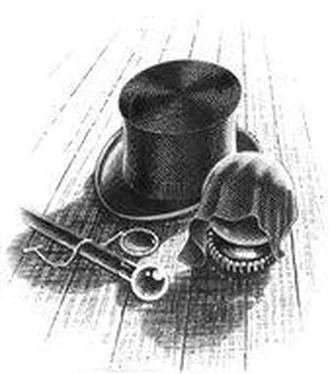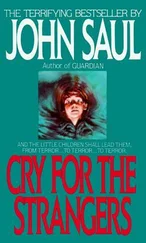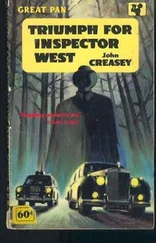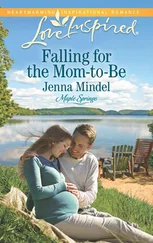John Creasey - Stars For The Toff
Здесь есть возможность читать онлайн «John Creasey - Stars For The Toff» весь текст электронной книги совершенно бесплатно (целиком полную версию без сокращений). В некоторых случаях можно слушать аудио, скачать через торрент в формате fb2 и присутствует краткое содержание. Жанр: Старинная литература, на русском языке. Описание произведения, (предисловие) а так же отзывы посетителей доступны на портале библиотеки ЛибКат.
- Название:Stars For The Toff
- Автор:
- Жанр:
- Год:неизвестен
- ISBN:нет данных
- Рейтинг книги:5 / 5. Голосов: 1
-
Избранное:Добавить в избранное
- Отзывы:
-
Ваша оценка:
- 100
- 1
- 2
- 3
- 4
- 5
Stars For The Toff: краткое содержание, описание и аннотация
Предлагаем к чтению аннотацию, описание, краткое содержание или предисловие (зависит от того, что написал сам автор книги «Stars For The Toff»). Если вы не нашли необходимую информацию о книге — напишите в комментариях, мы постараемся отыскать её.
Stars For The Toff — читать онлайн бесплатно полную книгу (весь текст) целиком
Ниже представлен текст книги, разбитый по страницам. Система сохранения места последней прочитанной страницы, позволяет с удобством читать онлайн бесплатно книгу «Stars For The Toff», без необходимости каждый раз заново искать на чём Вы остановились. Поставьте закладку, и сможете в любой момент перейти на страницу, на которой закончили чтение.
Интервал:
Закладка:
“What went wrong doesn’t necessarily concern us,” said Rollison. “Nevertheless, this was the company in which Madam Melinska persuaded you, and others, to invest. Where did the money for those investments go? As I said, it appears to have completely disappeared—and it seems that the police think Madam Melinska and Mona have something to do with its disappearance.”
“The charge is absurd,” said Lady Hurst. “Why neither of them could even pay for their own bail.”
Rollison frowned. “Some people think that this is a sham—that Madam Melinska has the money but is pretending poverty in order to make the charge seem absurd.”
“Do you believe that, Mr Rollison?” asked Madam Melinska quietly.
Rollison looked at her without speaking, feeling an odd compulsion to say: “No.” But until there was proof of what had happened to the missing money, no one could be sure.
The dark, compelling eyes met his.
“If you help to find the truth you may be badly hurt, Mr Rollison, many of your friends may turn against you. But you will get help from unexpected sources.”
Rollison stared back, determined that her gaze should drop before his; but it did not. He was beginning to wonder how long he could keep this up, to wish that his aunt would make some kind of interruption, when there was a tap at the door. It was the auburn-haired manageress.
“I’m sorry, Lady Hurst, but there is a telephone call for Mr Rollison. A Mr Jolly. He says that it is extremely urgent.”
For Jolly to say that, it must be, thought Rollison.
There was no telephone in the drawing-room, and he got up, murmured an apology, and went out. He could feel the gaze of the three women, his aunt’s tinged with a slight hostility, Madam Melinska’s reproachful, the girl’s frightened. He picked up a telephone in the hall.
“Yes, Jolly?”
Jolly said: “It’s grave news, sir, I’m afraid.”
His pause underlined the statement, and Rollison caught his breath in sudden alarm. “Charlie Wray has been fatally injured—in a car accident, so-called. The car didn’t stop, but a passer-by took a description of it—and the police think it may well have been the car that tried to run down Lucifer Stride.”
* * *
From that moment, Rollison’s attitude towards the inquiry changed. Until then he had been involved almost in spite of himself. Now, he was involved because he meant to find out who had killed Charlie Wray.
The next few hours were a nightmare.
First, he went to Fulham, to see and identify the body.
Next, he drove to the East End, where Bill Ebbutt lived, massive, flabby, wheezy, generous Bill Ebbutt, who found “work’ for a dozen boxing has-beens at his gymnasium which was next to his pub, The Blue Dog, near the Mile End Road. As the Bentley turned the corner into the mean street of tiny terrace houses, men and women turned to stare and the whispers began.
“It’s the Toff . . . Toff . . . Toff . . .”
“TheToff’s here . . .”
Toff, Toff, Toff, To . . . Rollison felt that he could hear the soubriquet from a hundred lips. And he saw the men and women, brought by the bad news, gathered outside the wooden gymnasium. The entrance was lined with people, nearly all of them men—mostly friends of the dead Charlie, old sparring partners, old opponents of the ring.
Rollison slammed the door of the car and walked what seemed an unending gauntlet of sad and familiar faces. He had asked for help and it had been given cheerfully; and now one of their friends was dead.
The sun shone out of a clear blue sky. It shone on the open door of the gymnasium, and then on Bill Ebbutt, as he appeared, wearing a black polo-neck sweater and black trousers—as if he were in mourning. The clothes showed up the pallor of his face.
His big hand engulfed Rollison’s.
“Bill,” Rollison said, “I couldn’t be more sorry.”
“I know, Mr Ar,” said Ebbutt, hoarsely. “Helluva thing to happen. Any idea who did it?”
“Not yet.”
“Every mother’s son of us will help.”
“I know,” said Rollison. “As soon as I need help, I’ll tell you. Does Mrs Wray know?”
“Yeh.” Ebbutt gulped. “I told her.”
“Is she at home?”
“Yeh.”
“Come with me, Bill, will you?”
The little home in a narrow street of old grey hovels soon to be demolished was within walking distance. A dozen silent men followed Rollison and Ebbutt round half a dozen corners and then to a front door painted bright yellow—painted, quite recently, by Charlie Wray. Two or three neighbours were in the tiny front parlour which opened on to the street; they stood aside for Rollison and Ebbutt to enter.
Wray’s widow was small and slim, with hair which was still jet black despite her sixty-odd years. She stared at Rollison, her eyes red and swollen, her face streaked with tears.
“Get out of my house,” she said. “Don’t ever come here again.”
“Daisy—” Rollison began.
“Don’t speak to me. Don ’ t speak to me. If it wasn’t for you, he’d be alive. You killed him.”
“Now, Dais—” began Bill Ebbutt, in distress.
The woman ignored him, her eyes boring into Rollison with frightening intensity. “Get out of my house. Get out of my house , Mr Rollison. And remember—don’t ever come back.”
“ You may be b adly hurt, Mr Rollison, many of your friends may turn against you
“Daisy,” Rollison said, very quietly, “if I were in your place I would feel exactly as you do. I’m desperately sorry.”
He turned and walked into a street which was now crowded. Many of the faces he saw were those of strangers, although there were some he knew, mostly from Bill Ebbutt’s gymnasium. A little grey-haired woman, struggling to see over the shoulders of those in front of her, shook her fist.
“You as good as killed poor Charlie!” she called out. “You sent him to his death!”
Uneasily, a man said: “Shut up, Ma.”
“I’ll shut up when you’ve shut him up.”
Ebbutt glared at her.
Rollison gripped his arm. “It’s all right, Bill.”
But it wasn’t all right. The silence was too noticeable, the coolness much too marked, as he walked away. There was hatred in his heart for Charlie Wray’s killers, and dismay at the attitude of the people here, so many of them his former friends.
* * *
“It’s crazy, Mr Ar,” Ebbutt said, “but the talk started even before you got here. They started to say you should have done the job yourself, not got someone else to do your dirty work. I —hey! I didn’t mean that the way it sounded, I meant . . .”
Bill Ebbutt floundered.
Rollison put a hand on his arm and said: “Don’t worry, Bill.”
He got into the Bentley and drove away, half expecting something to be thrown at the car; but nothing was thrown. The people just stared blankly and the last he saw of them was a miniature of set, troubled faces in the driving mirror. He turned into the Mile End Road and the roar and throb of traffic. Before he reached the tall spire of Whitechapel Church he knew that this was going to be a case that only he should handle.
Or he and Jolly should handle. He must telephone Jolly.
* * *
“The body was found only fifty yards from the house where Mrs Abbott lives,” said Jolly. “Do you think you should go and see her?”
“Yes,” said Rollison crisply. “What about Lucifer Stride?”
“He seems to have vanished,” Jolly said, glumly. He paused for a moment, and then added: “There is one other thing, sir. Have you seen the evening newspaper?”
“No.”
“It has a full report of the hearing, and of your generous gesture, sir. As a result there are a great number of people gathered outside, showing very considerable enthusiasm. You might well be advised to come in by the fire escape.”
Читать дальшеИнтервал:
Закладка:
Похожие книги на «Stars For The Toff»
Представляем Вашему вниманию похожие книги на «Stars For The Toff» списком для выбора. Мы отобрали схожую по названию и смыслу литературу в надежде предоставить читателям больше вариантов отыскать новые, интересные, ещё непрочитанные произведения.
Обсуждение, отзывы о книге «Stars For The Toff» и просто собственные мнения читателей. Оставьте ваши комментарии, напишите, что Вы думаете о произведении, его смысле или главных героях. Укажите что конкретно понравилось, а что нет, и почему Вы так считаете.












